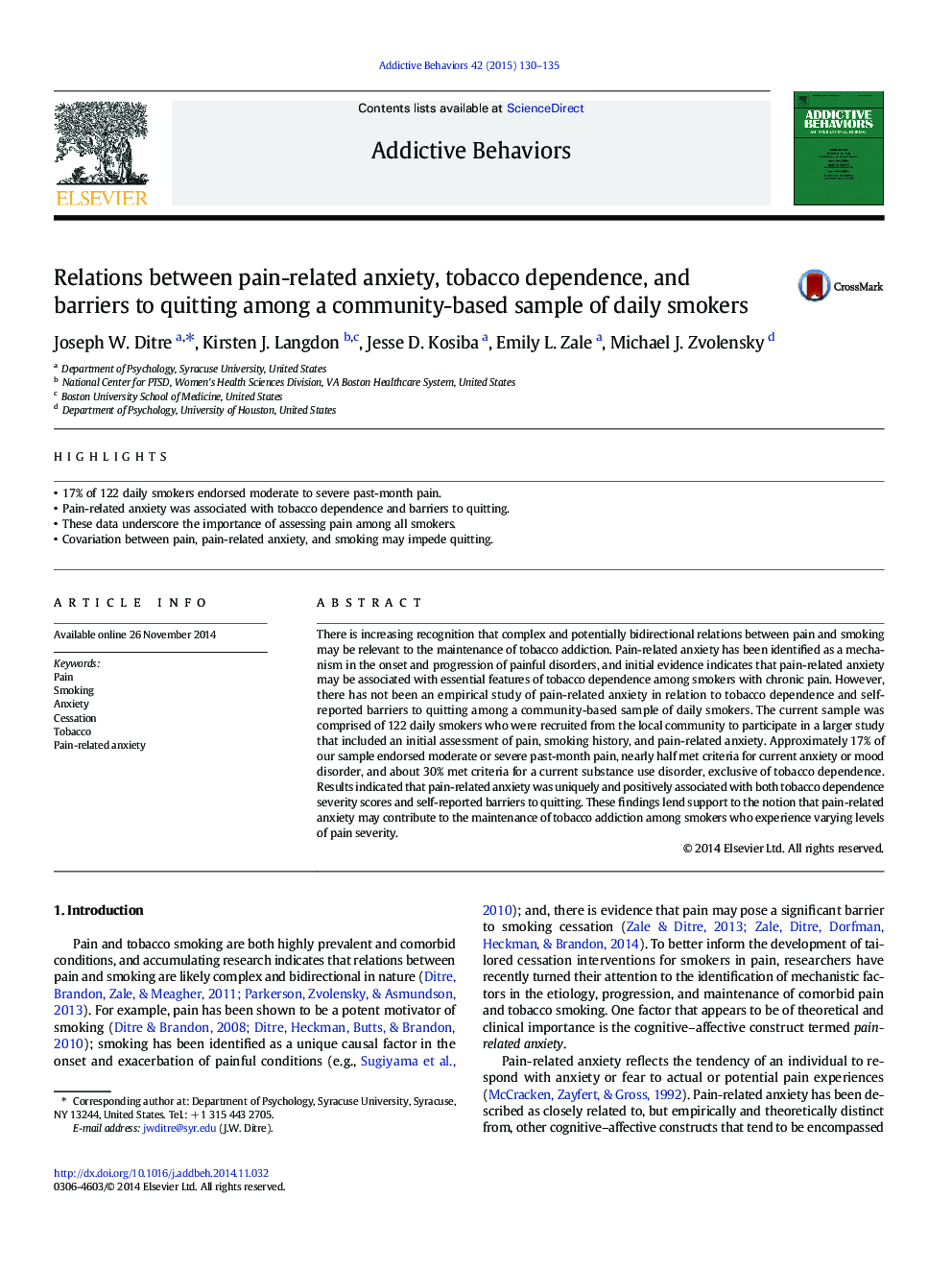| Article ID | Journal | Published Year | Pages | File Type |
|---|---|---|---|---|
| 7261031 | Addictive Behaviors | 2015 | 6 Pages |
Abstract
There is increasing recognition that complex and potentially bidirectional relations between pain and smoking may be relevant to the maintenance of tobacco addiction. Pain-related anxiety has been identified as a mechanism in the onset and progression of painful disorders, and initial evidence indicates that pain-related anxiety may be associated with essential features of tobacco dependence among smokers with chronic pain. However, there has not been an empirical study of pain-related anxiety in relation to tobacco dependence and self-reported barriers to quitting among a community-based sample of daily smokers. The current sample was comprised of 122 daily smokers who were recruited from the local community to participate in a larger study that included an initial assessment of pain, smoking history, and pain-related anxiety. Approximately 17% of our sample endorsed moderate or severe past-month pain, nearly half met criteria for current anxiety or mood disorder, and about 30% met criteria for a current substance use disorder, exclusive of tobacco dependence. Results indicated that pain-related anxiety was uniquely and positively associated with both tobacco dependence severity scores and self-reported barriers to quitting. These findings lend support to the notion that pain-related anxiety may contribute to the maintenance of tobacco addiction among smokers who experience varying levels of pain severity.
Related Topics
Life Sciences
Neuroscience
Behavioral Neuroscience
Authors
Joseph W. Ditre, Kirsten J. Langdon, Jesse D. Kosiba, Emily L. Zale, Michael J. Zvolensky,
